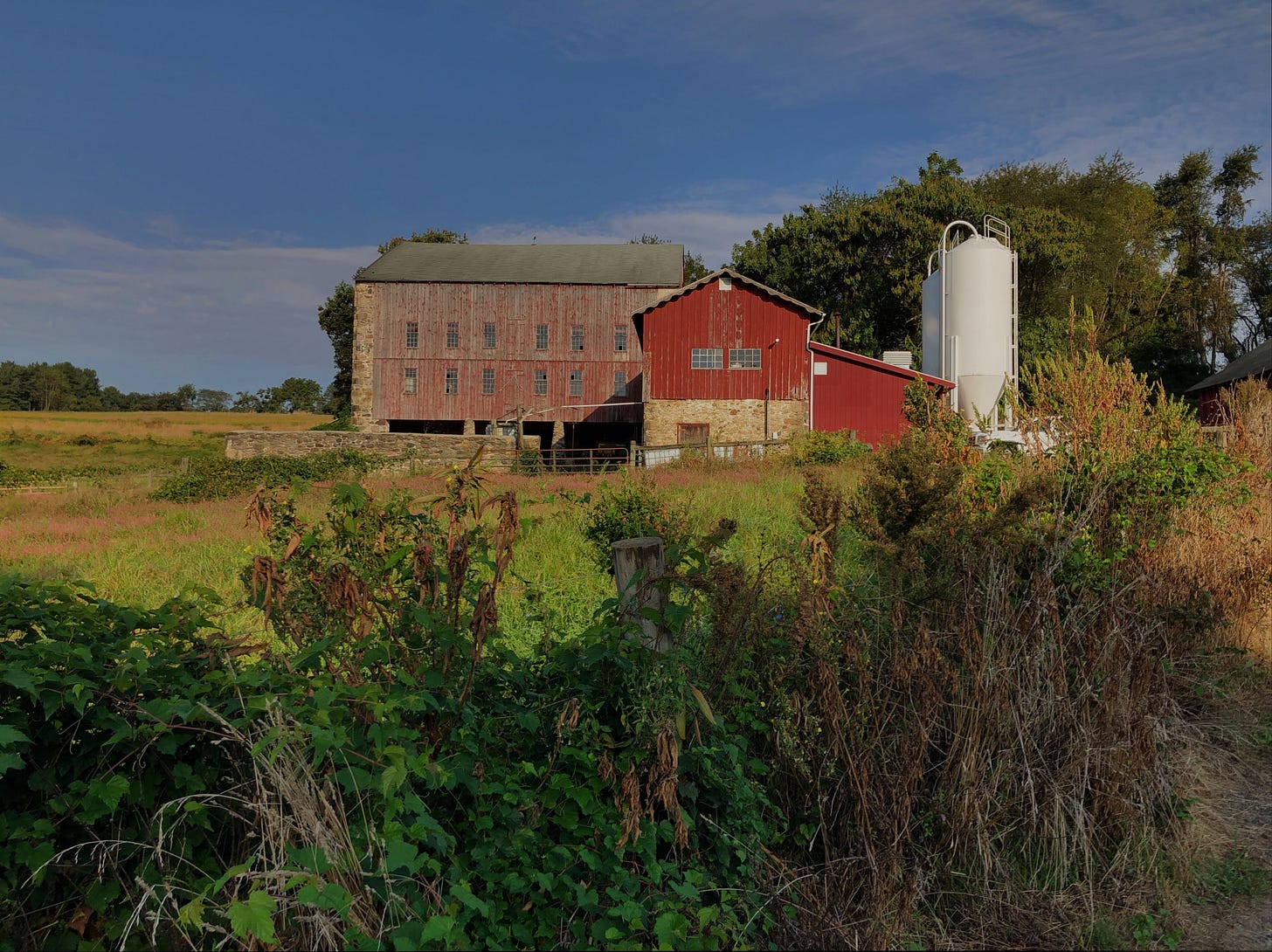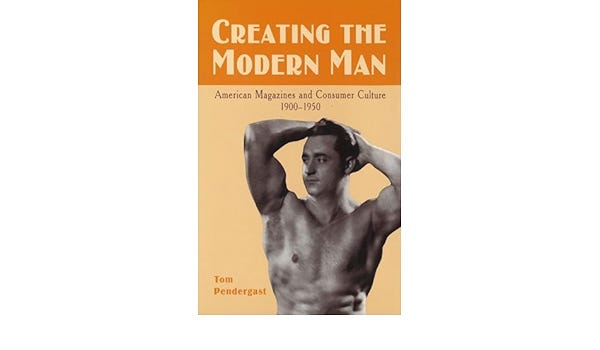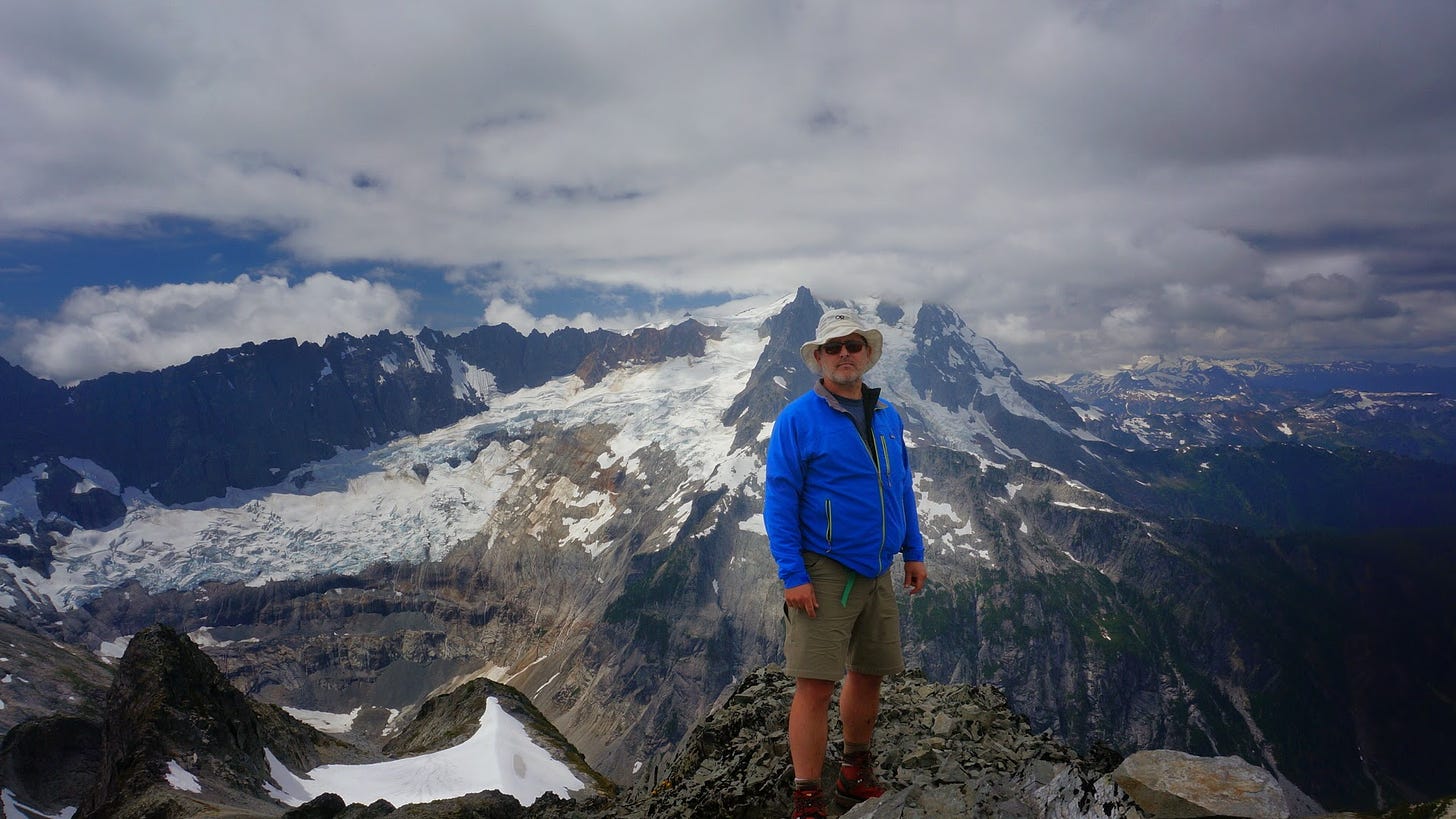Some months ago,
tested the stories he told himself about his life—his “personal myth”—and found that the harder he pressed, the harder it was to sustain his full faith in them.Given Roberts’ suggestion that we consider our own personal myths, I decided to explore mine, to identify and describe those moments in my life where I felt like my “personal myth” was at play. A personal myth, I told myself, must be capable of both making sense of my background, my past, and motivating or guiding my future actions.
So I tried to trace my personal myth from my teenage pilgrimage to our “ancestral farm” outside Philadelphia, on through my education and career, and into my adventures in mountaineering and track driving, and my decision to retire early.
My story started like this:
I began to understand my personal myth in my teens, at the inflection point when I began to reshape myself from the dorky, slightly husky kid whose nose was always glued to a book, and into the handsome, smart, popular young man who captained the football team, and who could manhandle hay bales with the older boys who worked on the farm. The crucible for this transformation was the semi-sacred place where many of the men in my family spent their youth: our family’s ancestral farm, Wynnorr Farm, not far from Philadelphia and closer still to Westtown School, the Quaker boarding school that had been so central to the lives of generations of Strattons (my mother’s side). I went to work on the farm for the first time when I was 13, traveling there by bus from my home in Michigan.
My mother had built up the idea of “the farm” throughout my youth: the farm has been in our family since the 1690s, she used to tell me, and all the men in the family have worked there ever since. In fact, several of our ancestors belonged to the founding Quaker families who established the Pennsylvania colony. Two of them—two for sure, maybe three—were signers of the Declaration of Independence. I don’t think she ever used the term explicitly, but the implication was there: we were a kind of American royalty.
That’s heady stuff for an impressionable kid, good stuff to build a myth from, especially when it comes from his mother, who was herself kind of exceptional: pretty, smart, professional, well-liked, and willing to try things and take chances. My mom spun a compelling tale about our family,1 and when I traveled to work on the farm that summer, I must have been ready to insert myself into that tale. I was big for my age and strong and I worked alongside 16- and 17-year-old boys and we laughed and sang songs while baling and stacking hay. On the weekends I went out to the Jersey shore with my cousin Betsy, who was home from college at Penn State and willing to drag her nephew along to “the shore” (as long as he got his ass in gear).
When I returned to Michigan at the end of that summer, I had not only physically begun to transform into a man, I also had a powerful personal story I could deploy to my advantage. In my story, all was for the best in the best of all possible worlds.
As I drew more anecdotes from my life, my story unfolded as if I always expected everything to go my way and, by golly, it largely did. I don’t mean this to sound grandiose. I’m no king of the world. I think that on most measures—smarts, looks, athleticism—I’m better than average, but rarely at the top. I got good grades at a public high school ... but I wasn’t the valedictorian. I was an all-county football player in high school … but I knew better than to try playing at the next level. I saw a girl across a crowded dance floor and said to my friend, “She’s the one for me” … and she is, to this day. I got a PhD … but at a mid-tier public university. I published my dissertation … with the University of Missouri Press. I helped build a successful company that secured a major investment ... and then floundered under this new ownership. On every objective account, good but not spectacular.
What struck me most about the strands of myth in my life story was my excessive optimism, my unshakeable and sometimes blind belief that things were going to work out for me. It made me willing to try things and take risks that someone with a personal narrative built around vulnerability or uncertainty would never have attempted.
But I can’t share my full story because I couldn’t complete it. The more I worked on it, the less I believed it. A personal myth should exist before events and guide one through them ... but that’s not what I found. All I could really see was a lucky lad, born into favorable circumstances, with favorable genetics, who demonstrated a sometimes reckless willingness to try anything. The stories I told myself about my life were not a personal myth, but rather post-hoc rationalizations for actions and decisions that were largely determined by genetics, environment, and luck.2
I took up Robert’s suggestion believing I was the captain of my own destiny, that I’d been living out a narrative shaped by my decisions. But the harder I looked, the more I think I’m a bundle of half-understood impulses and instincts, and my narrative is just a self-serving explanation for actions I couldn’t have helped but taking.
That’s right: I set out to find my personal myth, and what I found instead is that at every critical juncture—from skating through school; to moving to Kansas City only to find that my name went a long way, thanks to a mob boss from the 1930s; to brushing myself off after some harrowing close calls in the mountains; to laughing off a 360 degree spin on the racetrack—I wasn’t guided by a myth so much as propelled along by choices and drives that I was scarcely conscious of owning, let alone taking credit for. It’s not that I don’t still believe these stories I’ve told myself about my life and how it’s gone, it’s just that I don’t think I chose them, so much as I lived them out. I still have stories about them … but what’s the purpose of those stories?
It wasn’t the conclusion I thought I’d reach when I went out in search of my personal myth, but that’s why I write: to figure out what I really think. I hope it goes without saying at this point, but I’d love to know what you think.
And, as I learned later, the tale may have stretched the truth just a bit. I always sensed that there was something off about the way my mom told this story. It was too boastful, too self-congratulatory; it also lacked real detail. It made me uncomfortable when I’d hear her tell others and so, when I voiced it myself, I tried to go as low-key as possible. I finally found out why years later when I mentioned to my grandfather how cool it was that our family had been on the farm for so long. “Well, since 1903 is not that long,” he countered. I didn’t understand; I thought we’d been there since before the Revolutionary War. “Oh no, Thomas,” that’s what he called me, “my grandfather bought the place in 1903, and he had to sell the old house, the one from the 1690s, during the Depression. Where did you get that story?” When I told him my mom’s version of the story, he smiled and said, “That’s a bit of a stretch.”
Funny thing was, the rest of it was true: some of my ancestors had been part of the founding Quaker movement into the New World, two of them—John Morton and William Floyd—were signers of the Declaration of Independence, and you can’t walk around the graveyard at the Middletown Friends Meeting without tripping over my ancestors. It was a good story—mom just wanted to burnish it a bit.
If you detect the influence of Robert Sapolsky on my thinking, you’re right on the mark. I’d been rolling his ideas about determinism and free will around in my mind for a while, but it was only in trying to pin down the role of free will in my own life that I found myself moving closer and closer to his “hard determinism.” His ideas are best covered in Determined: A Science of Life Without Free Will, which came out late in 2023, and he’s been covered in every major magazine and podcast since. I’ve listened to a bunch of them and Sapolsky is remarkably consistent, so pick your fav and you’ll get a good sense.
Try a few of these, if you’re interested but not ready for the book:
For a pretty straightforward statement of Sapolsky’s hypothesis: “Robert Sapolsky Doesn’t Believe in Free Will. (But Feel Free to Disagree.),” https://www.nytimes.com/2023/10/16/science/free-will-sapolsky.html
For a nice complication of his ideas: Nikhil Krishnan, “How Can Determinists Believe in Free Will?,” https://www.newyorker.com/magazine/2023/11/13/determined-a-science-of-life-without-free-will-robert-sapolsky-book-review






Nicely done, and how appropriate for this Easter morning. Myth building is a very strong trait for me, so I’m still trying to make better sense of Sapolsky’s obliteration of free will. In any case it appears your personal experiences and family history provide a firm basis for figuring out where you and you sit on the spectrum between Sapolsky’s view and unquestioning acceptance of free will. I wish you well.
I don’t understand why your old family farm was sold in 1903 due to a depression. I’m not aware of one at that time , and of course the Great Depression came after 1929.
So well told, Tom. Thank you for this and your honesty. I have no family history yet share your need to tell my "myth" and to figure out who I really am by writing. I think we all are as you say, "propelled along by choices and drives that I was scarcely conscious of owning,"